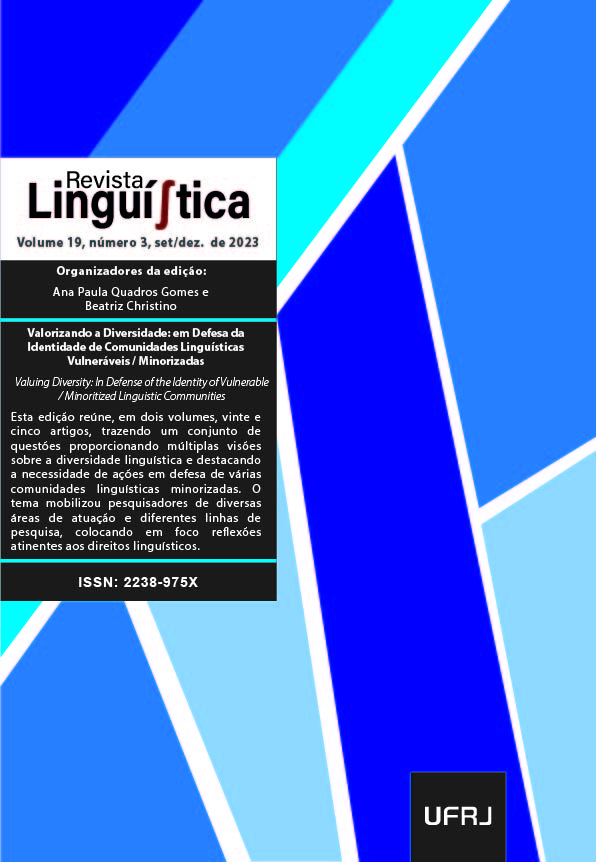From hate speech and xenophobia to linguistic welcoming actions implemented by universities in Roraima
DOI:
https://doi.org/10.31513/linguistica.2023.v19n3a59576Keywords:
Discursos de ódio e de xenofobia, Acolhimento linguístico e humanitário, Migração de crise.Abstract
The migratory flow of Venezuelans to the Brazilian state of Roraima has intensified since 2015. This has led to an increase in hate speech and xenophobia being reported in the media. This article aims to analyze the online comment sections of these media reports, as they provide examples of violations of humanitarian and linguistic rights. The perpetuation of these violations dates to the establishment of the system of linguistic colonization in Brazil (Neves; Gregolin, 2021). The theoretical framework is provided by Discourse Analysis, with contributions from Michel Foucault, in dialogue with Indisciplinary and Transgressive Applied Linguistics (Moita Lopes, 2006), as well as Linguistic Policies and Rights (Abreu, 2022; Castelano Rodrigues, 2018). This research employs the arqueo-genealogical method of understanding discourse as being subjected to a certain discursive order, since control of what is said and how it is said is subordinate to historical processes (Foucault, 2006). To achieve our goal, our study analyzed comments on news articles regarding Venezuelans’ migration to Roraima, specifically those on the UOL news website. Finally, we discuss the acceptance initiatives implemented by the State University of Roraima (UERR) and the Federal University of Roraima (UFRR). The results of said initiatives demonstrate a stereotype deconstruction movement related to the Venezuelan language and culture, as well as the appreciation of Roraima as a multi/plurilingual state.
Downloads
Published
Issue
Section
License
Copyright (c) 2024 Revista Linguí∫tica

This work is licensed under a Creative Commons Attribution-NonCommercial 4.0 International License.
Authors who publish in the Revista Linguí∫tica agree with the following terms:
The authors maintain their rights, ceding to the journal the right to first publication of the article, simultaneously submitted to a Creative Commons license permitting the sharing with third-parties of published content as long as it mentions the author and its first publication in the Revista Linguí∫tica.
Authors may enter into additional agreements for the non-exclusive distribution of their published work (for example, posting in online institutional or non-profit repositories, or book chapters) so long as they acknowledge its initial publication in the Revista Linguí∫tica.

The journal Revista Linguí∫tica is published by the Post-Graduate program in Linguistics of UFRJ and employs a Creative Commons - Attribution-NonCommercial 4.0 International (CC-BY-NC).









